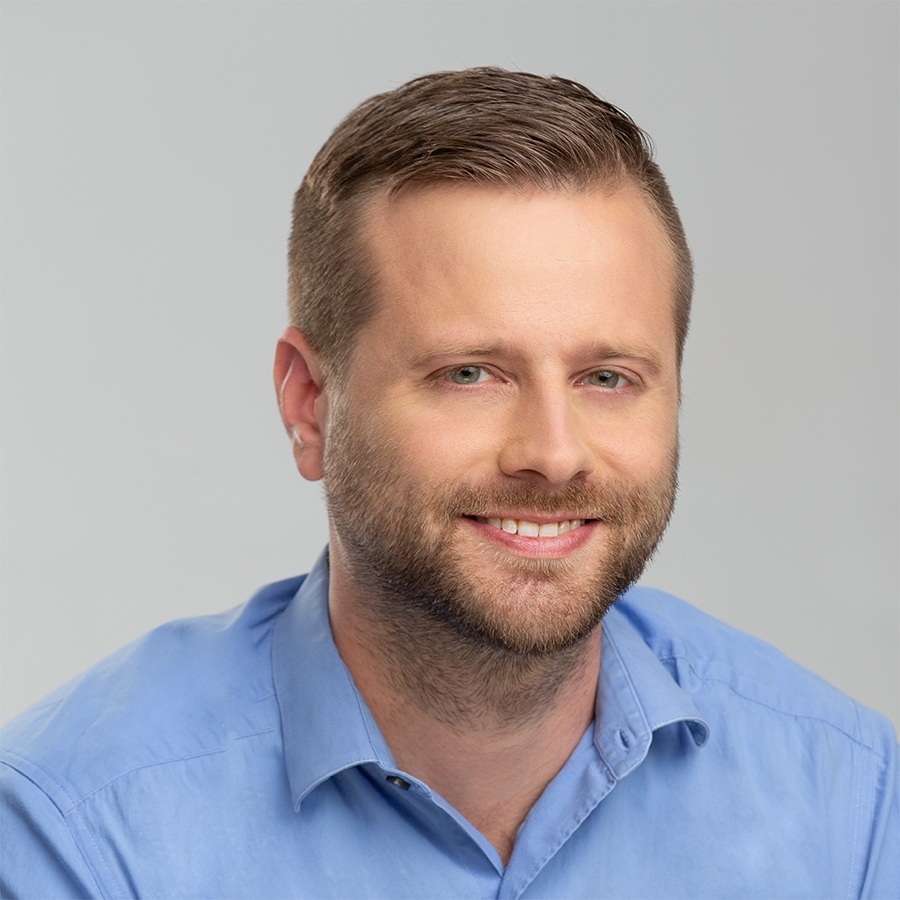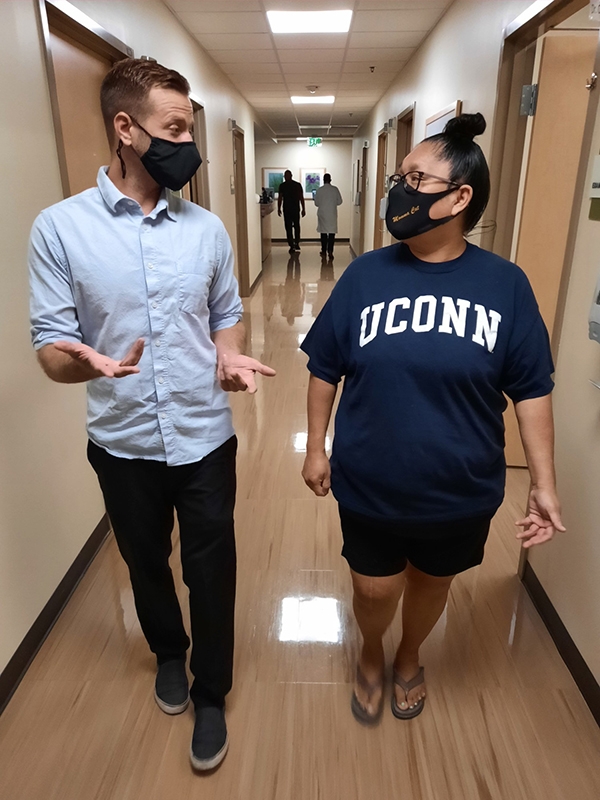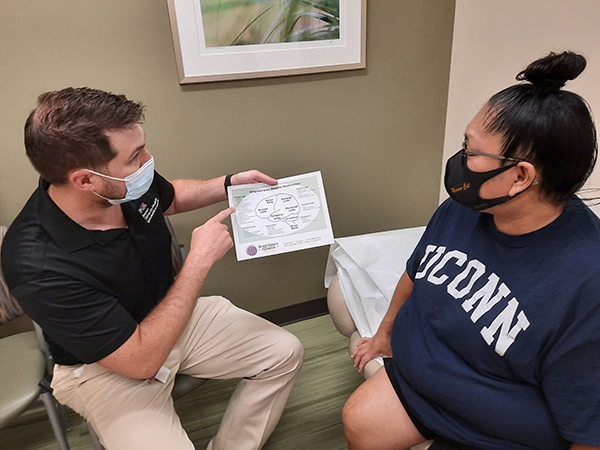Will Grove Brings Resource Support to Banner’s Brain Injury Center
Will Grove is taking his position of Outreach Coordinator/Resource Facilitation Specialist for the Brain Injury Alliance of Arizona to a new level. Working closely with Dr. Ian Crain, Director of the Brain Injury Center at Banner University’s Neuroscience Institute, Will is bringing resources and information directly to brain injury survivors at a critical stage—the beginning of their journey to recovery.
“The personal interface is important,” says Will. “More often than not, the injury is sudden; both survivors and their families are overwhelmed and don’t know where to turn. I explain how the Brain Injury Alliance has free programs and resources that they were likely unaware of. I also become a personal contact for them.”
Will Grove Brings Resource Support to Banner’s
Brain Injury Center
Will Grove is taking his position of Outreach Coordinator/Resource Facilitation Specialist for the Brain Injury Alliance of Arizona to a new level. Working closely with Dr. Ian Crain, Director of the Brain Injury Center at Banner University’s Neuroscience Institute, Will is bringing resources and information directly to brain injury survivors at a critical stage—the beginning of their journey to recovery.
“The personal interface is important,” says Will. “More often than not, the injury is sudden; both survivors and their families are overwhelmed and don’t know where to turn. I explain how the Brain Injury Alliance has free programs and resources that they were likely unaware of. I also become a personal contact for them.”
While the Brain Injury Alliance works with people with brain injury at whatever stage they’re at, as Will acknowledges, “By meeting them at the outset, we hope to make things easier for them and provide the right connections before a situation becomes a crisis.”
This weekly clinic was created at the behest of Dr. Crain, who is himself an at-large board member of the Brain Injury Alliance. It dovetails nicely with his approach to treating people with brain injury in a holistic fashion. He focuses on the whole person rather than just their symptoms, leading interdisciplinary teams to help patients and families live their best possible lives.
Frequently, this includes educating people about resources outside the medical domain. Without knowing what’s available, some survivors and their families end up venturing out on their own to search for and build social support networks. With Will in-house, available after their appointment with Cr. Crain, they’ll be able to get connected to free resources through the Brain Injury Alliance, such as support groups, classes, and activities.
Dr. Crain says, “Brain injury is scary. Will has been doing these initiations for a short time and I can see the positive effects they’re having. More than anything, survivors know they have someone who knows the territory and is advocating for them.”
Will acknowledges that the bureaucracy can be overwhelming. “It’s easy to get lost [within systems]. We’re here to help put survivors’ and families’ minds at ease, have them feel more hopeful.”
Among the programs he highlights that are provided by the Alliance include counseling for survivors of violence and substance misuse. There are also special funds for getting through crises, including the Butters Fund to keep survivors and pets together and the Utilities Assistance Fund to help keep the lights on and water running.
“We also have programs for veterans. Their concerns range from difficulty accessing services and support networks to wanting to get back to work after a brain injury,” Will states.
His desire to help others has been a hallmark of Will’s career. Before coming to the Brain Injury Alliance, he was a Family & Communities Team Facilitator (later to become Coordinator) with Child and Family Support Services (CFSS), focusing on behavioral health. After receiving referrals for caseloads with families, he would visit with patients to do intakes at their homes.
The next step of the process was for Will to develop patient plans, as his team had direct access to services, as well as knowledge of community services. “After they left a facility, that’s where we stepped in. While we provided solid information, what we really did was become a source of calm and hope.”
It’s this very sense of calm and hope that the survivors of brain injury and families Will works with now benefit from directly. “In many ways, what I did then bears many similarities to our present collaboration with Dr. Crain— we’re here to help clarify a way forward.”
ABOUT BRAIN INJURY ALLIANCE OF ARIZONA
The Brain Injury Alliance of Arizona (BIAAZ) is the only statewide nonprofit organization dedicated to improving the lives of adults and children with all types of brain injuries through prevention, advocacy, awareness and education. BIAAZ also houses the Arizona Brain Health Resource Center, a collection of educational information and neuro-specific resources for brain injury survivors, caregivers, family members and professionals.
What began in 1983 as a grassroots effort has grown into a strong statewide presence, providing valuable life-long resources and community support for individuals with all types of brain trauma at no charge.
The Brain Injury Alliance of Arizona:
- Works with Congressional Brain Injury Task Force
- Houses Arizona Brain Health Resource Center
- Hosts Statewide Opioid Use Disorder & Cognitive Impairment Workgroup
- Has Statewide Opioid Use Disorder & Cognitive Impairment Response team with peer support, training, and family wraparound services
- Facilitates Brain Health Advisory Council
- Manages statewide Neuro Info-Line: 888-500-9165









